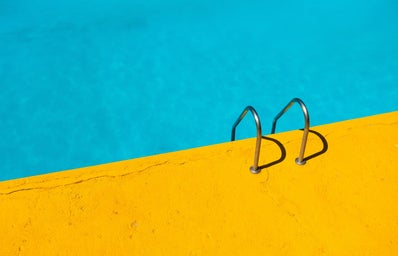When I was in elementary school, I would begin each day by writing a funny story to share with my class. I enjoyed elaborating on something funny I had seen, something new I had learned, or a story straight from my imagination. During recess, I scribbled down notes to myself for future secret writing projects and conjured up characters for books that I wished to read. I wrapped myself up in fantastic novels, and dreamed about spending my life curled up in a chair somewhere with a soft animal and an even softer blanket. I never anticipated adopting a STEM-based major in college.
I avoided advanced science and math throughout high school. As a result of my love and proclivity for subjects like English, history, and foreign languages, liberal arts courses have always brought me joy. Something about the human nature of these courses made it easy for me to connect my own experiences and relate to the material.
After three years of what could be called a phobia of advanced STEM courses, I decided to throw all caution to the wind and take AP Environmental Sciences. It took me less than three weeks to know that environmental policy had captured my heart.
I am now in my first year of college, double-majoring in Economics and Environmental Policy Analysis and Planning (EPAP). I know what you may be thinking — my parents thought the same thing — why on Earth would I choose to study a major based in STEM with no history in science courses? Although it sounds intimidating, EPAP is actually the perfect major for my interests because one of its seven eventual concentrations is Environmental Policy and Politics. However, there is a catch: for all concentrations, the EPAP major requires four quarters of core sciences, two of calculus, and one of statistics.
I knew two things as I approached this year:
1. These courses would present exceptional new challenges and opportunities for personal growth.
2. I am very, very behind.
One of the first things I learned upon entering my calculus and biology courses this quarter is that my new STEM peers have been learning this material for a while. They are comfortable throwing around terms like “polar-covalent bond” and “ribosomal sub-unit,” and seem to speak with great confidence about scientific theory. A group of students in my biology lab even joked about a question on last year’s AP Biology exam.
I, on the other hand, quietly take notes on their conversations and remind myself to absorb all of the Khan Academy materials regarding cell cycles and organelles. As finals approach, I am aware that although I am spending a lot more time studying, I still have a weaker understanding of course material than my peers.
The transition from liberal arts to STEM has been a difficult one. As someone who is programmed to think in terms of the humanities and tries to relate my emotions to my course material, it is difficult to transition my thought processes to be analytical, scientific, and ultimately unfeeling. During fall quarter, I spent weeks preparing for my calculus final exam. I knew that math was not a strong topic for me, so I practiced. Hard. I did hundreds of practice problems and reviewed my past three midterms. All of this amounted to a mere C+ in this course.
At first, I viewed this passing grade as a failure. But why? That course, as difficult as it was, taught me how to study effectively, a lesson that I value more than an A in one quarter for one class. I sometimes find myself thinking negatively and criticizing my own intelligence and character based on what I perceive as failures in my more difficult courses. However, stretching myself past my own securities has taught me how to be a better student and a better person. I know how to ask for help when needed, I know how to concentrate for days straight on something that I am determined to accomplish, and I now know that my dreams can become plans.
Though I may not be passionate about molecular biology or gene mutations, I am now able to romanticize my science courses as I did my liberal arts classes in high school. I am trying to embrace the topics I understand the least. After all, what is more remarkable than studying the essence of life itself?
Cover image source: Pexels



